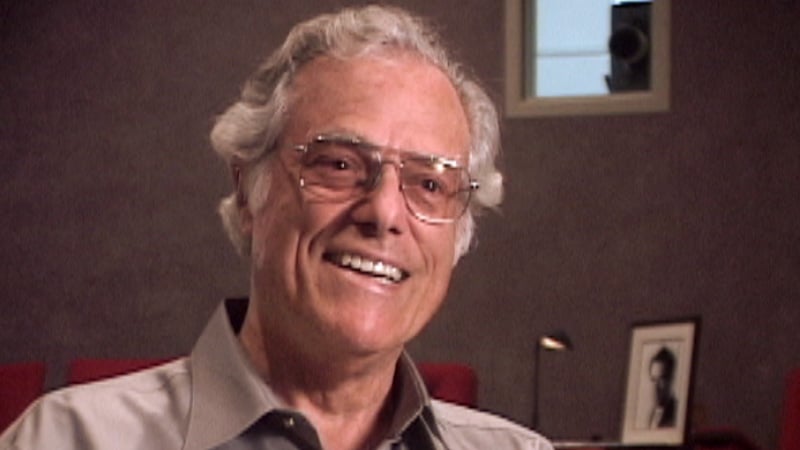Visual History with Frank Capra Jr.
Interviewed by:Joe D’Alessandro
Frank Capra Jr., son of former DGA President Frank Capra, grew up in Hollywood, surrounded by the famous directors, producers and actors that worked with his father. At Pomona College, Capra studied geology, but soon decided to pursue filmmaking as a career. He combined his degree and background in science with his moviemaking creativity and began producing and directing documentaries for Hughes Aircraft, detailing the aircraft and machinery the company built on contract for the U.S. military. In 1957 Capra joined the Directors Guild as a second AD and worked on the films Diamond Head (1963) and Pocketful of Miracles (1961), as well as the television series Dennis the Menace, Hazel, Gunsmoke, The Rifleman, Zane Grey Theater and Wanted: Dead or Alive.
Prior to the Vietnam War Capra enlisted in the Army’s film unit where he taught soldiers combat motion picture photography from both the land and air. After the Army, Capra began producing feature films such as Marooned (1969), Play It Again, Sam (1972), Tom Sawyer (1973), Born Again (1978), An Eye for an Eye (1981), and three entries in the Planet of the Apes franchise—Escape from the Planet of the Apes (1971), Conquest of the Planet of the Apes (1972), and Battle for the Planet of the Apes (1973). In 1983 Capra was sent to Wilmington, North Carolina by producer Dino De Laurentiis to scout locations for the film Firestarter (1984). Both producers found Wilmington a pleasant place to both live and work and continued to create movies there. In 1996 Capra became the president of EUE/Screen Gem Studios in Wilmington, the largest movie studio on the East Coast. Additional producing credits of Capra include Marie (1985), Death Before Dishonor (1987), Waterproof (2000), Queen City Blowout (2003), Two Headed Cow (2006), and Why We Fight Now (2008).
Capra was a member of the DGA’s Western AD/UPM Council from 1961-63, 1967-69, 1971-77, and again from 1979-85. He also served on the DGA’s National Board from 1961-63 and the 1964 Negotiating Committee. In 2000 he was honored at the 2nd Annual DGA Honors in New York in recognition of his instrumental role in transforming Wilmington into a regional production center for both television and film, as well as for his significant contributions as a creator of original programming.
Select Viewing Option:
Highlights